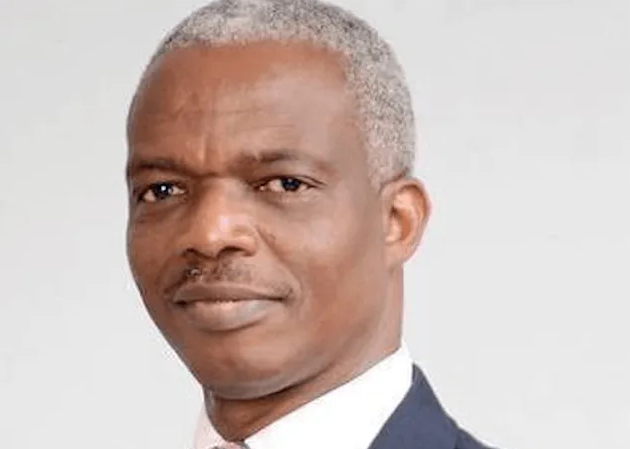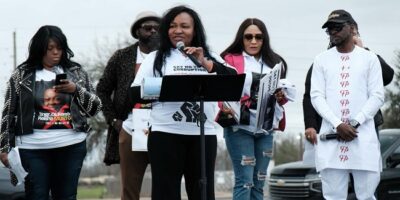EAC: Nigeria Needs Macroeconomic Stability To Attract Investments

- FG needs new economic model for faster growth, says bank chief
The Chairman of President Muhammadu Buhari’s Economic Advisory Council (EAC), Dr. Doyin Salami, has stressed the need for the federal government to ensure that the country achieves macroeconomic stability to attract much-needed investments.
This is coming as the Managing Director, Chief Economist Africa and the Middle East, Global Research, Standard Chartered Bank, Ms. Razia Khan, has said that Nigeria needs a new economic model and long-term policies that should consistently focus on how to formalise the informal sectors by making other key economic activities count from the revenue perspective.
Salami spoke yesterday while delivering a keynote address at the Seventh National Economic Outlook organised by the Chartered Institute of Bankers of Nigeria (CIBN) in collaboration with B. Adedipe Associates, held via a virtual platform.
Salami, who is of the Lagos Business School, also pointed out that policymakers in the country must strive to improve the confidence level in the economy as that the economy requires a lot of investments.
For me, it is very clear that macroeconomic stability is first and foremost. The economy requires a massive amount of investments. And we will achieve that investment if we have macroeconomic stability. We need a set of policies that would enable us to bring down inflation and accelerate growth. Macro-stability is about bringing down inflation and bring growth,
he added.
According to him, external factors are also important in driving most internal responses as well as outcomes.
He identified four things within the external environment that policymakers and business operators in the country must always pay attention to.
He listed them as: What is happening to international policy, international trade, international capital movement and diaspora transfers.
These for me are the four key things that drive the Nigerian economy from outside of our borders.
When you look at the international environment, the prognosis is that this will be a better year than 2020.
The whole of 2021 will be substantially shaped by COVID-19 and the response to the virus. Yes, vaccines are now available, but the challenges of getting them out are not going to be an easy one,
he said.
He added that the oil sector will be a major element of how 2021 turns out for Nigeria, noting that despite the recovery of oil prices, OPEC quota continues to restrict the country’s production capacity.
In the domestic economy, inflation is a major challenge at almost 16 per cent for the headline figure and just short of 20 per cent for the food inflation. In terms of our external accounts, our external accounts have weakened considerably,
he stated.
He said beyond that, on the fiscal side, Nigeria has and continued to manage the challenges arising from inadequate revenue, stressing that those challenges have manifested in rising indebtedness and rising debt service.
If revenues don’t come in, borrowing is typically what happens. Now, borrowing is not a Nigerian specific matter. If you look around the world, you would see that a lot of countries had borrowed a huge amount. One of the challenges that Nigeria must respond to in 2021 is the utilisation of what is borrowed,
he added.
He also urged the government to tackle the security challenges facing the nation.
Salami said the policy direction of the incoming United States’ President, Mr. Joe Biden, who will be sworn-in today, will also be important in shaping economic direction in Nigeria.
However, he urged the Central Bank of Nigeria (CBN) to address the gap in the forex market.
He said:
How quickly and how far the closure of that gap will occur will unfold as the year goes. The third thing on the macro-stability side has got to do with the exchange rate.
Nigeria must adopt an exchange rate policy that allows the economy to grow. Let me make it abundantly clear, this is about using exchange rate policy to grow the economy and not about devaluation. The first key challenge around exchange rate policy is around growing confidence.
Salami stressed the importance of passing the Petroleum Industry Bill, which he said will also boost confidence in the sector, just as he called for the sustenance of some of the reforms initiated in 2020.
In his presentation, the Chief Consultant, B. Adedipe Associates, Dr. Biodun Adedipe, noted that despite the disruption caused by the pandemic, there are still opportunities for discerning investors.
The economy is already on the path of recovery and technically, that would be confirmed even if we have a 0.001 per cent positive growth. But what is more important is growth this year.
What can explain the recession that Nigeria experienced in 2016? It is not about whoever is in government today, it is about the defects in the structure of our economy which rests on five things: Our overdependence on hydrocarbons, government’s policy inconsistency and misalignment, corruption and rent-seeking, over-dependence on imports and low national productivity,
he added.
FG Needs New Economic Model for Faster Growth, Says Bank MD
The Managing Director, Chief Economist Africa and the Middle East, Global Research, Standard Chartered Bank, Ms. Razia Khan, has said that Nigeria needs a new economic model and long-term policies that should consistently focus on how to formalise the informal sectors by making other key economic activities count from a revenue perspective.
She also called for pay greater attention to growing revenue base and putting in place a medium to long- term plan that will show more progress year-on-year in terms of mobilising non-oil revenue.
Khan, while making a presentation at the Nigerian Stock Exchange (NSE) 2020 Market Recap/2021 Outlook programme held virtually yesterday, said this is the time for Nigeria to make more significantly structural progress, reduce its vulnerability to oil cycles and reduce its vulnerability to future oil price declines.
Nigerian capital market will play a key role in this. We know that as part of COVID-19 response, we have seen a real need for the Nigerian government to curtail debt service bill and therefore Nigerian bond yields are very negative in real terms when compared to inflation and we see less compelling reasons for foreign portfolio investors to come in. The inflation has surged to a much greater level that anyone will be comfortable with and this thus creates a demand for policy reforms.
Nigeria needs to find a new economic model, the kind of foreign exchange (fx) policy that will be in place for the long haul. When will Nigeria be able to clear the backlog of accumulated(fx) demand? When will Nigeria see a working fx regime in place to attract inflows from the rest of the world to finance its investments,
she stated.
Although she projected that the Nigerian economy will grow by 2.5 per cent in 2021 and 3.1 per cent in 2022, that growth will only come with strong reforms.
Khan noted that while the nation’s capital market ought to be the channels to fund the growth of the economy, fx volatility has made most Sub-Sahara Africa(SSA) frontier markets such as Nigeria not as investible as they were prior to COVID-19 crisis.
According to her, the real issue that will affect growth this year is the debt load and debt burden that many African countries have taken on.
She noted that some countries have initiatives like debt services suspension initiatives, insisting that the basic issue with that is that it is a deferring of a debt obligation.
According to her, it does not, in a meaningful way, reduce the amount of debt.
Nonetheless, international financial institutions are taking a slightly different view of things and there is a global consensus now that even before applying for the debt service suspension initiative, if it is very clear that a country has a very unsustainable debt load, action should be taken at the very outset to reduce the amount of public debt to achieve some kind of debt sustainability. This is an issue that is not likely to go away anytime soon,
she explained.
The economist said that while she is aware of the favourable demography, young population, rapid urbanisation, adoption of new technology and driving productivity growth,
the big concerns to SSA growth prospects are all those long-standing factors such as how much space that is going to be for public investment, what has happened to debt ratio in the recent past, what has happened to debt affordability and how concerned is the market?
Khan said as a result of an unprecedented amount of liquidity support globally, which has made Eurobonds spread tighten, it is impossible for Nigeria to borrow internationally to be able to fund the investments and the finance debt maturities that are coming up.
We will see a recovery in 2021. Although the oil price is beginning to improve but the question is this going to be enough. The key priority is how to make the other key economic activities count from the revenue perspective,
she added.

Justin Nwosu is the founder and publisher of Flavision. His core interest is in writing unbiased news about Nigeria in particular and Africa in general. He’s a strong adherent of investigative journalism, with a bent on exposing corruption, abuse of power and societal ills.













